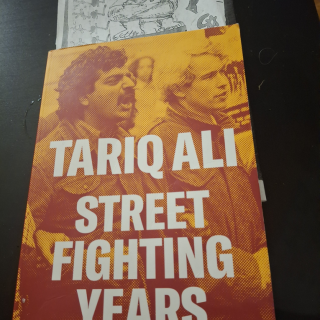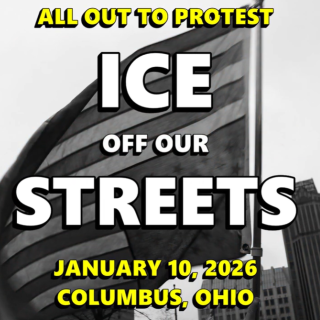Tom Hayes’s brilliant new documentary Two Blue Lines explores the passionate debate among Israeli citizens about their government's Occupation of Palestine. The film deftly splices together dueling creeds, and the result is electrifying, because it’s a split so rarely displayed on U.S. Screens. Zionist "settlers" claim all of historic Palestine, asserting, variously: "This is our territory returned by God"; "The Arabs are trespassers in the land of Israel: it's not their country"; "This [land] is ours in every sense of the word"; It's a "Jewish and democratic state." Human rights' advocates say the opposite, deploring the contradiction between a "Jewish state"--with “Apartheid” privileges for Jews in an "ethnocracy"--and a democracy with equal rights for all. The movie shows competing views of Judaism: a religious entitlement to land versus a spiritual commitment to freeing the oppressed, asking whether Jews are safer segregated or connected to other humanity. As several people of conscience remind us, seeking a purely physical security exposes a people to the "more dangerous" moral hazard of "re-enacting what happened to us"--even becoming "animals."
Hayes grounds this drama in history, with clips from archival newsreels describing Israel's founding. The film reveals that in 1948 Israel expelled 718,000 of 850,000 Palestinians, destroying two-thirds of their villages. It cites International Law: UN Resolution 194 establishes the Palestinians’ Right of Return to their homes and the Fourth Geneva Convention outlaws Israel's "collective punishment" of Palestine, including house demolitions, theft of water and other resources, torture, humiliation, and murder. It compares the numbers of children killed from 2000-2014: “82 Israeli kids, 1861 Palestinian kids.”
The artistic originality of the film's story-telling goes beyond even its striking sounds of words, music, silence, buzzers, explosions. Hayes’s pictures, from his own living archive of 32 years' footage, offer entrancing time travel: we magically see "the first Jewish American ...conscientious objector" turned World Religion scholar transform from youth to middle age and back, as he and others analyze the 1967 Occupation, 1989 Intifada, 1993 Oslo accords, 2000-2004 second Intifada, the attacks on Gaza, as well as the ever-disputed theology. The movie compares the Israel military insistence that it shoots "non-lethal” bullets to x-rays of human skulls with bullets lodged deep inside. It contrasts massive Israeli-government airstrikes with a Palestinian suicide bombing. It juxtaposes the Zionists’ vaunted attachment to the land with their desecration of ancient landscapes, especially by building both the huge Wall and rows of identical stone houses in Palestinian territory, turning paradise, not merely to parking lots, but to fortresses.
The sights in Two Blue Lines also ask viewers to wonder continually what the title means. Spoiler alert: keep watching past the gripping end, through the credits and closing song by George Snow.
Hayes tells me that he set out to document the Palestinians’ lives under Occupation, but in the face of frequent Israeli Army interference--"Closed Military Area” orders, curfews declared wherever he worked, threats of physical harm--his crew would "go up the hills to the settlements or back across 'The Green Line' into Israel, looking for interesting Israelis to film." Hayes notes that several of his Palestinian crew and interviewees were shot during production, and more than a dozen were incarcerated without charges or trial.
Two Blue Lines confronts U.S. viewers with an Israeli schism over their state's oppression of Palestine, as well as our own government's responsibility: over $100 billion and the majority of our Security Council vetoes have supported Israel’s wars. This disturbing film can revolutionize discussion here, opening the conversation to Palestinian wisdom, as when Shireen asks near the film's end, "Can you imagine" what "I feel when I am being bombed?”
That question suggests the call to empathy, justice, and peace Americans will hear.
The film premiers Tuesday, January 27, 7 PM, at the Wexner Center for the Arts
1871 North High Street
Columbus, OH 43210
http://wexarts.org/film-video/two-blue-lines
Two Blue Lines is Hayes's third film about Palestine. His other films were Native Sons: Palestinians In Exile, and People and The Land.



